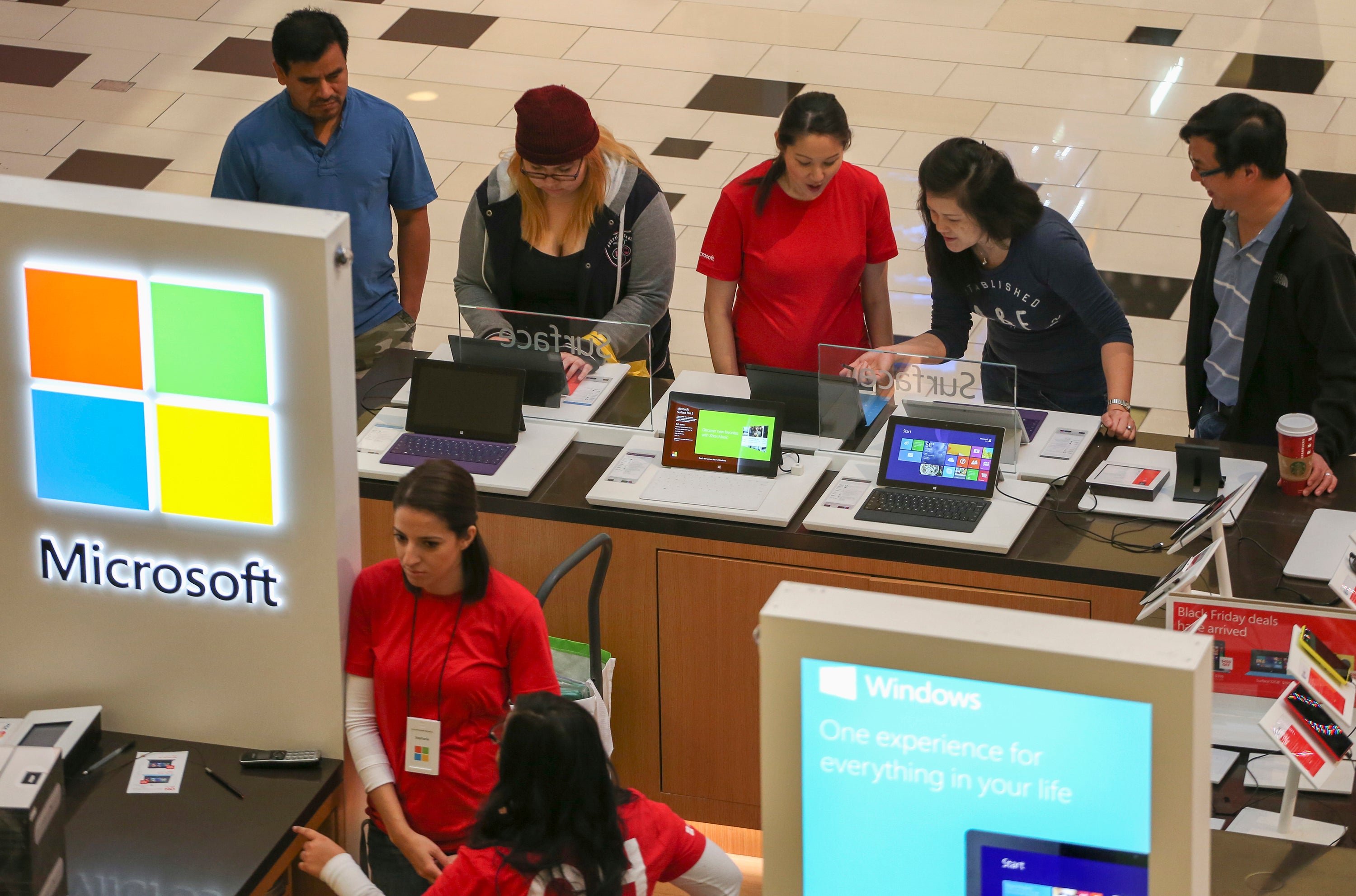Microsoft brands governments a 'persistent threat' alongside malware and cyber attacks
Maker of the world's most popular operating system joins Yahoo and Google in offering encryption as default for customers and their data

Your support helps us to tell the story
From reproductive rights to climate change to Big Tech, The Independent is on the ground when the story is developing. Whether it's investigating the financials of Elon Musk's pro-Trump PAC or producing our latest documentary, 'The A Word', which shines a light on the American women fighting for reproductive rights, we know how important it is to parse out the facts from the messaging.
At such a critical moment in US history, we need reporters on the ground. Your donation allows us to keep sending journalists to speak to both sides of the story.
The Independent is trusted by Americans across the entire political spectrum. And unlike many other quality news outlets, we choose not to lock Americans out of our reporting and analysis with paywalls. We believe quality journalism should be available to everyone, paid for by those who can afford it.
Your support makes all the difference.Microsoft has announced a series of new measures designed to protect customers’ data against government snooping , and have attacked official authorities as a danger to security and privacy online.
“Government snooping potentially now constitutes an “advanced persistent threat,” alongside sophisticated malware and cyber attacks,” said Brad Smith, Microsoft's general counsel, in a blog post.
“Many of our customers have serious concerns about government surveillance of the Internet,” said Smith. “We share their concerns. That’s why we are taking steps to ensure governments use legal process rather than technological brute force to access customer data.”
Microsoft have pledged to expand the use of encryption in all their products and services, reinforce legal protections by routinely challenging gag orders, and increase transparency by allowing government customers to review the company’s source code and “reassure themselves of its integrity”.
This last service will be offered to the governments of countries outside of the US and will be vital if Microsoft is to reassure its foreign customers that the US does not have a ‘direct line’ to their information.
Reports from The Washington Post based on documents provided by the whistle-blower Edward Snowden have suggested that the NSA had successfully obtained unauthorised access to servers of all the major internet companies, including Google and Yahoo.
Speaking to Reuters, Smith said that the reports were “like an earthquake sending shock waves through our industry,” and that companies had always assumed that they would hand over necessary data via legal processes rather than be subject to hacking attacks from their government.
These new measures have been announced just as further leaks from Snowden have revealed that the NSA tracks hundreds of millions of mobile phones globally.
Microsoft’s new encryption protocols will cover all “key platform, productivity and communications services”, with “best-in-class industry cryptography […] in place by the end of 2014, and much of it is effective immediately.”
This will bring Microsoft in line with other major companies such as Google and Yahoo, who have also introduced new encryption measures in the wake of reports of the NSA’s spying.
Join our commenting forum
Join thought-provoking conversations, follow other Independent readers and see their replies
Comments